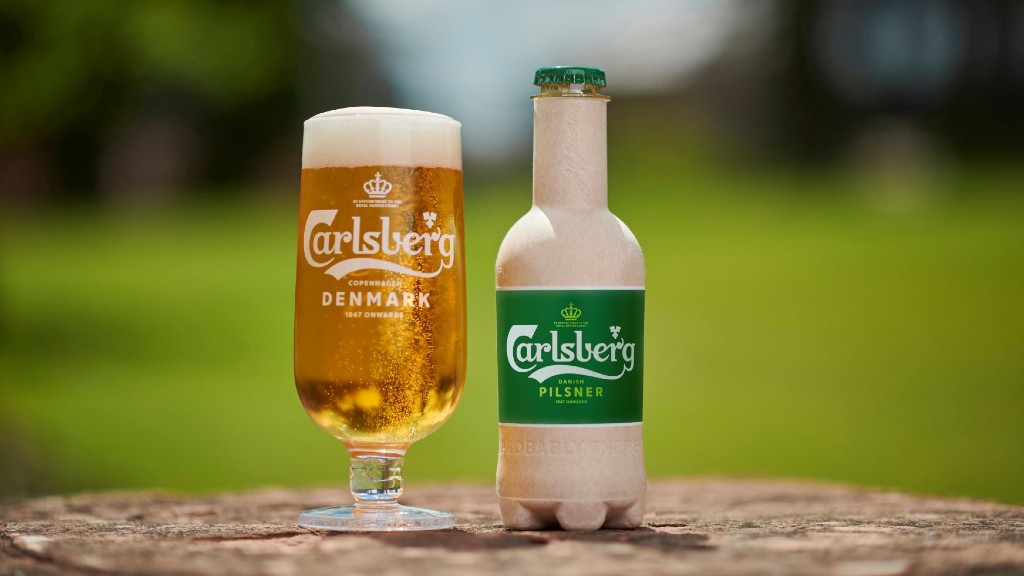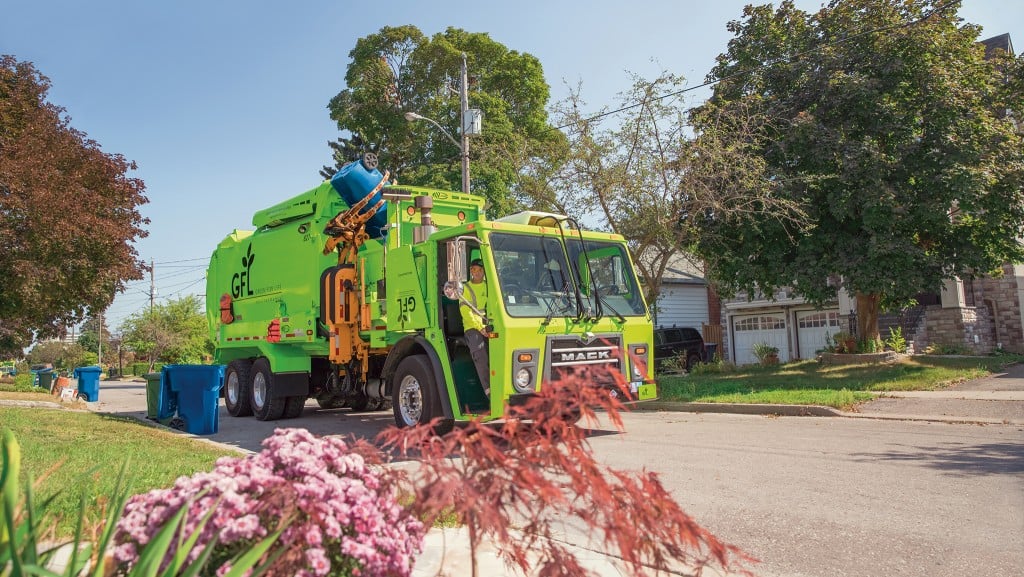
In the company's largest pilot to date, Carlsberg Group has revealed the trial of its new fibre bottle. The bottle is a bio-based, fully recyclable beer bottle. The bottle will contain beer brewed with organic and regenerative barley.
The pilot, which is vital to accelerating Carlsberg's desire of making the fibre beer bottle a commercial reality, will see 8,000 fibre bottles being sampled in eight Western European markets like Denmark, Sweden, Norway, Finland, United Kingdom, Poland, Germany, and France. The bottles will be piloted at select festivals and events, as well as targeted product samplings. This testing will give Carlsberg the opportunity to gather feedback on people's experiences of the product, informing future designs.
Carlsberg's fibre beer bottle uses PEF technology
Carlsberg's fibre beer bottle uses a plant-based PEF polymer lining which has been developed by Avantium. PEF is made entirely from natural raw materials, is compatible with plastic recycling systems, and can degrade into nature should it end up outside national recycling systems. Beyond its sustainable packaging benefits, PEF functions as a highly effective barrier between the beer and the fibre outer shell, protecting the taste and fizziness of the beer better than conventional fossil-fuel-based PET plastic.
The outer shell of the bottle, produced by the packaging company Paboco, consists of sustainably-sourced wood fibre and is also bio-based. This shell has the added benefit of insulative properties which can help keep beer colder for longer, compared to cans or glass bottles.
"We are delighted to bring our new fibre bottle into the hands of consumers, allowing them to experience it for themselves," says Stephane Munch, vice president of group development at Carlsberg. "This pilot will serve a greater purpose in testing the production, performance and recycling of this product at scale."
The bottle is 100 percent bio-based apart from the cap, which is currently needed to ensure the quality of the product, and together the bottle and cap are fully recyclable. Going forward, Paboco, Carlsberg, and partners are exploring alternative fibre-based bottle caps, with a generic solution expected in 2023. Carlsberg will continue development, together with Avantium and Paboco, to arrive at a solution that is suitable for primary beer packaging.
Brewed with barley grown from organic and regenerative practices
Advancements have not been limited to the bottle itself as Carlsberg has also bottled a more sustainable brew for its 2022 consumer trials. In collaboration with barley malt supplier Soufflet, Carlsberg has brewed a beer with barley that has been cultivated using fully organic and regenerative agricultural practices. More specifically, cover crops have been grown in the organic barley fields to contribute some additional benefits of regenerative farming.
Performance of the new fibre beer bottle
Generation 2.0 of the fibre beer bottle already performs better than the single-use glass bottle in the product´s lifecycle assessment. Carlsberg aims for the fibre beer bottle to achieve up to 80 percent less emissions than current single-use glass bottles.
With that goal, for every single-use glass bottle created, five fibre beer bottles could be created using the same carbon footprint. Ultimately, Carlsberg aims for the fibre bottle to achieve the same low carbon footprint as a refillable glass bottle, which is currently one of the best performing primary packaging when collected and reused in efficient systems. When the fibre bottle is commercialized at scale, it will expand Carlsberg consumers' choice and complement, rather than replace, existing packaging.


